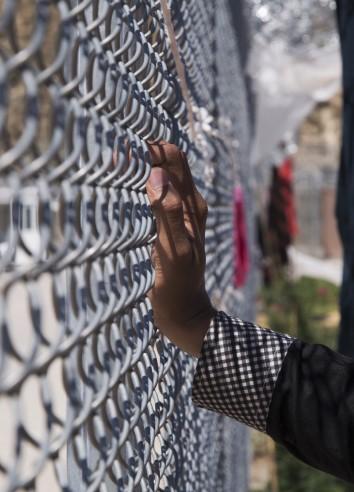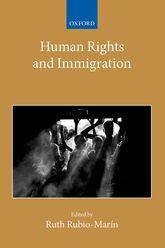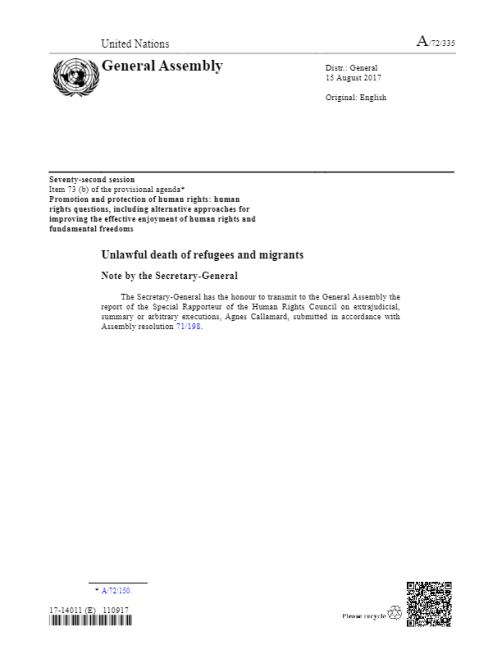
Respecting and protecting the lives of migrants and refugees: the need for a human rights approach to save lives and find missing persons
The world is in a migration crisis. Thousands of people are dying annually trying to get across the Mediterranean. However, this is not a problem unique to Europe. It has remained a hidden global problem for a long time. What is specifically unknown are the numbers of people who have gone missing while migrating. This article therefore focuses on such missing people. It examines the numbers of people that are known to have died, and argues that there is a general dearth of information about both people who have died, as well as those who have gone missing. The article reviews who missing people are and argues that the term missing is only found to any large measure in the laws of armed conflict, and most other situations that cause people to go missing, those who are subject to enforced disappearances, are not covered. The article argues that more research ought to be done on these issues and more data ought to be collected and analysed. It argues that people on migration routes are vulnerable and further argues that more needs to be done to provide them with protection and assistance. The laws dealing with the missing are analysed. The article argues that a human rights approach is needed to deal with the problem and that states need to play much more of a compassionate and humane role concerning migration matters and missing people generally and specifically. The article also argues for partnerships and coordination, that the families need to be given more support, and that more public education is needed to deal with the negative perceptions and misconceptions that exist in many societies to which those migrating seek to move to, as this will give greater positive impetus to states to deal more appropriately with those who migrate for whatever reason.




